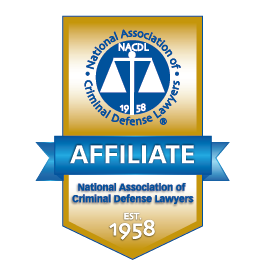A sex offender registry refers to a listing of people convicted of sexual offenses like rape. After a conviction, these people are known as sexual offenders. Therefore, the law requires them to register on the local database for sexual offenders.
The sex offender registry’s purpose is to alert the public of individuals' crimes and encourage residents to be more watchful around those people. This is particularly so when a sexual offender is convicted of a sex crime involving minors. Additionally, it enables the police to access the offenders' information just in case they perpetrate a similar violation again.
A simple mistake could land you on this registry, complicating your life even after serving your jail/prison sentence. We often receive several questions regarding removal from the sex offender registry. For example, is it possible for an offender's information to be taken off the registry, and if so, how? Removal from the registry is possible in particular cases. This blog explains the necessary removal steps in California.
Removal from the Registry
The Sex Offender Registration Act provides that an individual should register if they are found guilty of given sex crimes in California. Before, every convicted sex offender was required to comply with the registration requirement for life. But effective 1st January 2021, California enacted new rules on when a sexual offender can request to be removed from the sex offender registry as follows:
- A tier one offender may qualify for removal from the registry after ten years. This level is for offenders found guilty of the least severe sex crimes, for example, indecent exposure.
- A tier two offender may qualify for removal after twenty years. This level is for individuals found guilty of midlevel sex offenses, for example, non-forced sodomy with a child under fourteen years and lewd acts with a child below fourteen years.
- A tier three offender still has to register as a sex offender for life. This level is for persons sentenced for the most severe California sex crimes. Examples of these crimes include rape, child pornography, child molestation, sexual offenses against minors ten years and younger, and lewd acts with a child by fear or force.
Note that tier three offenders are classified into two— ‘Tier Three - Risk Assessment Level’ and ‘Tier Three - Lifetime.’ If you are classified under Tier Three - Risk Assessment Level, you can file a removal petition twenty years from the time you were released from custody provided:
- You have not been found guilty of a new crime requiring registration or any violent felony per PC 667.5(c) since you were released from prison.
- You have registered as a sexual offender for twenty years.
The court will determine whether your continued registration would substantially enhance public safety before granting or denying your petition. On the same note, if you are categorized under Tier Three - Risk Assessment Level, you are NOT eligible to petition if you were convicted under PC 288 or of a serious felony per PC 1192.7(c). If you are a Tier Three - Lifetime, you are NOT eligible to petition for removal from the registry.
These new rules came into existence after Senate Bill (SB) 384 was passed. With these rules in place, a registered sexual offender can now request to be excluded from the offender registry after completing the mandated minimum registration time as required by the level of their offense. They can make their request by filing a petition in court, which a lawyer can assist them with.
SB 384 aims to enhance others’ public safety by:
- Permitting local police agencies to direct their attention to violent criminals.
- Enabling the authorities to target criminals who are likely to become repeat offenders.
It is critical to remember that even after you remove your name from the registry in California, other states may still need you to register.
What About Being Removed from the Megan's Law Website?
The state of California publicizes info about certain (not all) convicted sexual offenders on its Megan's Law Website. Megan's Law is the federal statute requiring the publication of relevant details to safeguard the general public from sex offenders. The law was enacted in 1996. It is named after a seven-year-old New Jersey girl who was killed after being raped by a sexual offender residing near her home.
The girl's parents asserted that they might have been able to protect their girl had they been aware a convicted sex offender was residing nearby, so the state should publicize details about sex offenders' locations. California sex offenders have been required to comply with the registration requirement for more than seventy years. But the website makes info more broadly available to everyone.
Being on the Megan's Law website is often the hardest part of being convicted of a sex offense. Anyone can access information about your place of residence and come to attack you. Some sexual offenders have reported that angry people have confronted them. The website is also known for publicizing incomplete or inaccurate information, distorting how the public portrays offenders.
Removal from the Megan's Law website is known as exclusion and is possible if you qualify. The process is as follows:
Find Out If You Are Eligible
Not everybody qualifies to be excluded from the website. However, if you are eligible, you can apply for exclusion from the website whether or not you have completed your required minimum registration time. You are eligible for the exclusion if your conviction was for:
- PC 647.6, molesting or annoying a child.
- PC 243.4a, sexual battery by restraint.
You could also apply for removal if the following is true:
- Your crime did not entail oral copulation, neither did it involve penetration.
- The victim of your violation was your sibling, grandchild, stepchild, or child.
- You have successfully served your probation or are presently serving and about to complete it.
Consider this example: suppose you were found guilty of a misdemeanor Penal Code Section 243.4a violation for groping. The victim in question was a girl in your college dormitory, and you successfully served your probation sentence. In this case, you are eligible for removal from the Megan’s Law website.
But if you did penetrate the victim against their will, you are not eligible for exclusion. You are also not eligible if you served your sentence in prison. You want to look at the copies of your papers to know what crime you were accused of and found guilty of.
Fill Out the Megan's Law Website Exclusion Form
This form is found at the California (DOJ) Department of Justice. Provide all the required information and reserve a copy of the application form for personal records. Should you satisfy the conditions, the DOJ should grant your petition and exclude the info from the Megan’s Law website. Although, even if you qualify for the exclusion, the DOJ can turn down your request if they consider you a sexually violent predator. The DOJ should send you a letter within thirty days containing their decision.
It is also critical to note a sex offender is prohibited from accessing the Megan’s Law website by any means. Doing so is a misdemeanor offense punished by a maximum jail sentence of six months and one thousand dollars in fines.
Continue Registering as a Sexual Offender
Removal from the Megan's Law website will not free you from the requirement of registering as a sexual offender. Instead, you should continue registering whenever you relocate so the authorities can keep an eye on you. However, removal from the website will provide you with some degree of privacy.
Also, you want to understand that excluding your info from the Megan's Law website will not erase your criminal conviction. Even after excluding your information, a person can still access your conviction by conducting a criminal background check against you. You may want to consult a lawyer to know if you could expunge your criminal conviction record so the public can no longer access it.
Do Not Commit Any More Crimes
Should you be charged and convicted of another sex offense, your info can be republicized on the website. Based on the violation, you may also be incapable of reapplying for the removal of your details later. Therefore, you want to avoid having trouble with the law.
Other Ways of Being Excluded from the Megan's Law Website
Applying for removal is only one of the ways of having your details talked down from the Megan's Law website. Should you be pardoned by the Governor of California or receive a Certificate of Rehabilitation, the state will relieve you of the requirement to register as a sexual offender in many cases. Consequently, your details should not show up online on the website.
A conviction record expungement can also make you eligible for exclusion from the Megan's Law website. However, an expungement will not relieve you of your sex offender registration requirement. This means you must continue registering in the sex offender registry, although your information will not be publicized.
Contact an Experienced Sex Crimes Attorney Near Me
Being on the California Megan's Law website and sex offender registry is a humiliating experience, and the legal system is deliberately meant to be insensitive. Working with an experienced sex crimes lawyer can reduce the period required for exclusion and spare you the worry of having to register as you focus on reclaiming your identity confidence.
If you wish to request exclusion from the website or registry or have any questions about removal, our lawyers at The Record Expungement Attorney Law Firm can help you. We have defended many clients charged with sex offenses in Orange County and can assist you in determining whether you are eligible for removal. Schedule a cost-free consultation and case evaluation session with our skilled lawyers by calling us at 714-627-5727.


















